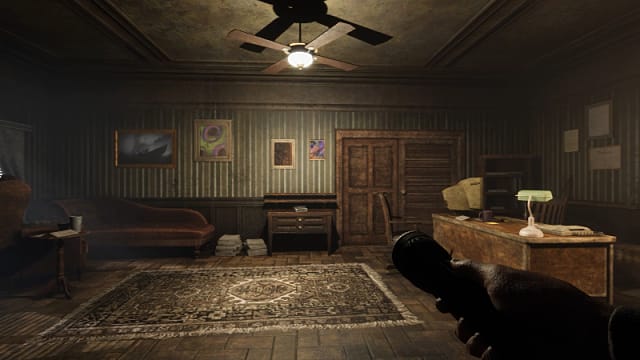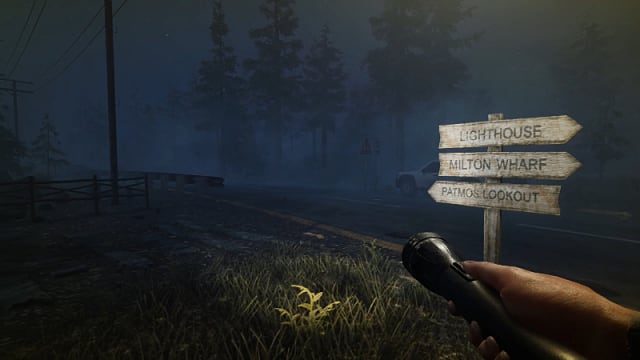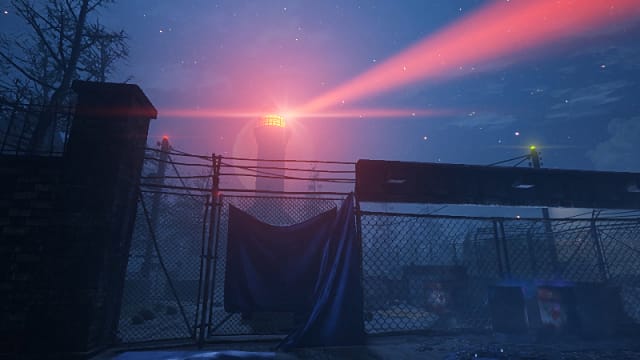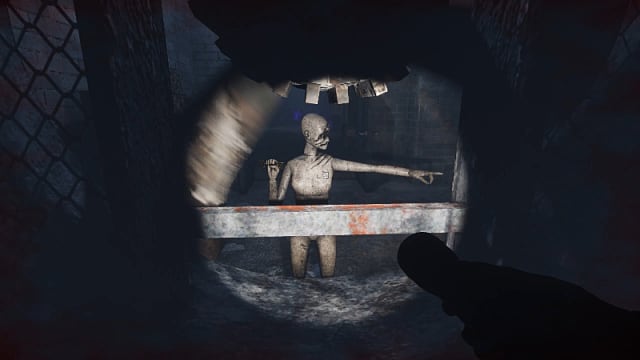I love indie games. I love horror games. I don’t always love indie horror games. Despite what should be a liberating ability to forge new paths, unshackled by the sometimes rubbernecking major publishers, an inordinate number of indie horror games seem to fall into the same trappings.
Seemingly handcuffed by smaller budgets, indie horrors tend to fall into the adventure-horror genre — with faux haunts, too-scripted scares, or any number of other typical shortfalls when games in this genre are made with limited resources.
To both my surprise and my delight, In Sound Mind bucks this trend, delivering a horror experience that, so far anyway, looks poised to outperform many of its counterparts.

Therapist Desmond Crane is haunted by his own invasive thoughts, he feels he’s going crazy, and apparently, it’s been affecting his patients who have all been dying off lately. To figure out why, Crane must venture into the recesses of both his own mind and theirs, in a supernatural just-go-with-it setup I neither expect nor really want to be explained in real terms.
In Sound Mind‘s premise is an interesting one right away, with its emphasis on a central protagonist with a backstory I haven’t seen before. His story is merely an excuse for the real heart of In Sound Mind, however: the chaotic, even psychedelic, inner workings of his patients’ minds.
The current build of the game allowed me to explore the first few “tapes,” recordings from Crane’s therapy sessions, and I was stunned to see just how different they were from each other. While the whole game uses a first-person point of view, these two levels demonstrated In Sound Mind‘s apparently greatest feature: variety in its setting, and thus its scares.
In Virginia’s tape, I explored the self-hatred of a physically scarred girl through the twisted underworld version of a haunted superstore where she had a traumatic experience, all while her ever-present ghost stalked the aisles looking and listening for me.

Hiding from Virginia, dressed in a ghostly dress with a lower body made of snakes, the game dared me not to sneak past her, but to lure her. To defeat her, I’d need to get her to look into various mirrors, using my handheld shard to watch her behind me, like the children at the border of the woods taunting the monsters of Shyamalan’s The Village.
With controls inverted in the mirror and her hellbent intentions to do me harm, I had to clumsily Pied-Piper her to five separate mirrors before she was finally overcome and I’d unravel more of her story, finally free of the haunting. It was almost always as intense as intended.
It was this first encounter where I realized In Sound Mind is built differently than so many games of its stature. This is not a horror-lite experience. This is a real survival horror game, where managing ammo, going the extra mile for that additional critical resource like flashlight batteries, and solving complex puzzles with monsters breathing down your neck work together to keep tension mounting.
Each tape brings new mechanics to Crane’s arsenal, like that shard of glass that can both cut through previously inaccessible obstructions as well as reveal hidden objects in its reflection.
Later, piecing together a pistol from crafting parts and collecting a gas mask give the hub-like apartment a metroidvania-like unraveling, whereby you recurringly take one step forward and two steps back through the increasingly hostile hallways, which can morph into even more unsettling labyrinths right before your eyes a la Layers of Fear.

The second tape feels plucked right out Alan Wake, and I don’t mean that in any way suggesting offense. I loved it. A much bigger open-world area dropped me into coastal town into Allen’s mind (the name is apparently no coincidence), where a lighthouse’s red gaze loomed on a threatening rotation, dealing damage whenever I was caught in it. Later, a dark presence (if you will), hunted me in the shadows while I manipulated light to outwit the angry spirit.
While some of the story details are decidedly different, I felt like this newest tape was a deliberate homage to Alan Wake, and I’d be curious to know if that’s true. It was pretty close, both mechanically and aesthetically speaking. Either way, it once more showed me the depth of gameplay on offer with In Sound Mind. This section was very much unlike the first tape, and there will be more tapes to explore in the full game, presumably each one as fresh as these.
This isn’t to say it’s flawless. Some enemy encounters seem like they can be gamed in a way that breaks immersion, like running from “Inkblot” enemies until they despawn rather than face them head-on. Even the haunting Virginia seemed to stop slashing at me if I just kept running away when spotted, though I can also see how this is better than getting insta-killed by her with every failed try.
Things like these remind me this is still an indie game from a relatively small team. There will very likely be hiccups in the full release, but because it does so much else, and really more than so many counterparts of equal pocket depth, I’m willing to forgive these issues for now and wait and see how they feel in the full game.

Even in this partial playthrough, the game kept giving me new ways to explore, new reasons to turn over every stone, and new, genuine scares. In turn, I found myself enchanted by this rare indie horror that actually delivers emergent haunts and some remarkably varied environments.
This has the makings of a game that really shouldn’t work as well as it does. It feels like it’s doing too much and it should buckle under the weight of so many elements. But so far, that just doesn’t seem to be the case. Horror fans should keep this on their radar. In Sound Mind will be on my mind a lot between now and when it launches on September 28 for all major platforms.
In Sound Mind is releasing on September 28 for PC, PlayStation 5, and Xbox Series X and will be releasing on the Nintendo Switch at a later date.







Published: Jul 15, 2021 01:48 am